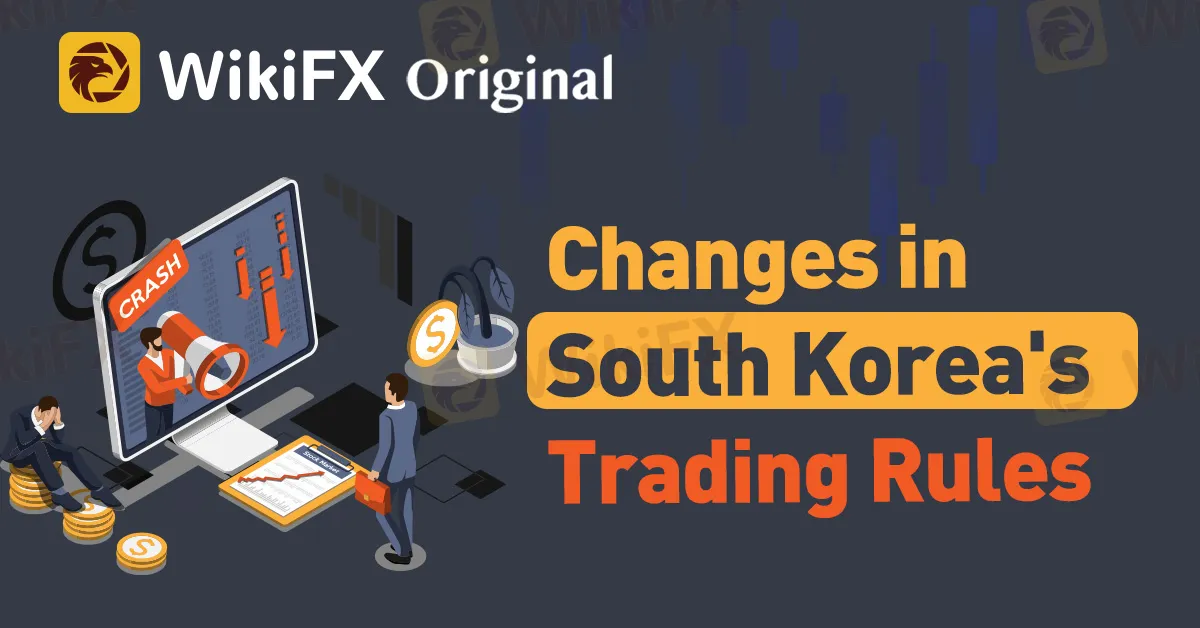简体中文
繁體中文
English
Pусский
日本語
ภาษาไทย
Tiếng Việt
Bahasa Indonesia
Español
हिन्दी
Filippiiniläinen
Français
Deutsch
Português
Türkçe
한국어
العربية
Changes in South Korea's Trading Rules
Abstract:South Korean financial market regulators are implementing stringent regulations on contracts for differences (CFDs) trading to enhance transparency, prevent market manipulations, and address recent incidents of losses and volatility in the market, aiming to restore trust and protect investors.

South Korean financial market regulators are set to introduce comprehensive regulations for contracts for differences (CFDs) trading to ensure transparency and prevent market manipulations, according to reports from various local news outlets. The official announcement comes after eight South Korean stocks experienced continuous declines for nearly a week due to the effects of CFDs trading, resulting in losses exceeding 100 billion won ($77 million) as CFDs accounts were liquidated. The Financial Services Commission (FSC), the Financial Supervisory Service (FSS), Korea Exchange, and the Korea Financial Investment Association have jointly unveiled these measures.
In the current regulatory framework, retail investors are categorized as either institutions if their transactions are processed by a local broker, or foreign investors if handled by a foreign broker, leading to confusion regarding the origin of investments. To address this, Kim So-young, Vice Chairman of the FSC, stated that the financial authorities will revamp CFD trading regulations, aiming to provide investors with accurate information about transactions, including the identification of real investors involved and the level of associated liquidation risks. This transparency will enable investors to make informed and prudent investment decisions.

The South Korean authorities also aim to raise the standards for qualifying as a professional investor, making the criteria more stringent. Additionally, brokers will be required to verify the qualification of professional investors every two years. Furthermore, new regulations will mandate face-to-face authentication for opening CFDs accounts, replacing the previous online authentication method without in-person verification.
Meanwhile, the regulators have recommended temporarily restricting CFDs trading and account opening in the country until the new regulations come into effect. Many local brokers have already halted customers from opening new accounts since the end of April, following the controversy surrounding CFDs trading. The FSS conducted inspections on several CFDs brokers, uncovering cases where accounts were opened without proper identification verification and brokers engaged in misleading advertisements for risky investment instruments. The investigation by the FSS is ongoing, including an examination of a brokerage executive, with plans to expand the scope if necessary.
Kim emphasized that recent unfair transactions have damaged trust in the capital market and dampened investment sentiment. The government and relevant institutions acknowledge their significant responsibility and are committed to swiftly and rigorously resolving the issues at hand, aiming to restore trust and rectify the problems that have arisen.

Disclaimer:
The views in this article only represent the author's personal views, and do not constitute investment advice on this platform. This platform does not guarantee the accuracy, completeness and timeliness of the information in the article, and will not be liable for any loss caused by the use of or reliance on the information in the article.
Read more

The Daily Habits of a Profitable Trader
Every professional trader follows a structured approach to ensure they are well-prepared, disciplined, and able to seize opportunities with confidence. Whether you are a seasoned investor or an aspiring trader, adhering to a robust daily checklist can significantly enhance your performance. Use this checklist to check if you are a qualified trader

The Impact of Interest Rate Decisions on the Forex Market
Interest rate changes determine currency attractiveness, influencing capital flows and exchange rate trends. Understanding this mechanism helps investors navigate the forex market effectively.

How a Housewife Lost RM288,235 in a Facebook Investment Scam
A 47-year-old housewife in Malaysia recently fell victim to an online investment scam, losing a substantial sum of RM288,235 after engaging with a fraudulent scheme advertised on Facebook.

A Trader’s Worst Mistake: Overlooking Broker Reviews Could Cost You Everything
In today’s digital age, reviews influence nearly every decision we make. When purchasing a smartphone, television, or home appliance, we pore over customer feedback and expert opinions to ensure we’re making the right choice. So why is it that, when it comes to choosing an online broker where real money and financial security are at stake many traders neglect the crucial step of reading reviews?
WikiFX Broker
Latest News
The Withdrawal Trap: How Scam Brokers Lure Victims into Paying More
FCA to Investors: Think Twice Before Trusting These Brokers
Trump\s tariffs: How could they affect the UK and your money
Trump gambles it all on global tariffs he\s wanted for decades
TradingView Brings Live Market Charts to Telegram Users with New Mini App
Trump tariffs: How will India navigate a world on the brink of a trade war?
Interactive Brokers Launches Forecast Contracts in Canada for Market Predictions
Authorities Alert: MAS Impersonation Scam Hits Singapore
Stocks fall again as Trump tariff jitters continue
IG Group Acquires Freetrade for £160M to Expand UK Investment Market
Currency Calculator







